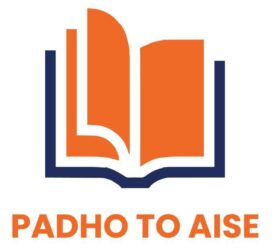UGC NET Paper-1 Online Course
Welcome to PADHO TO AISE, your trusted guide for preparing for the UGC NET Paper-1 exam. Our online course is designed to help you achieve success in this competitive exam with comprehensive coverage of the syllabus, interactive lessons, and expert guidance. We aim to make learning accessible and effective for everyone. Whether you are a first-time test-taker or looking to improve your previous score, our course provides the tools you need to excel.
Course Details: Strategy, and Realities of Other Coaching Institutes.
What You will get in Our Course?
Who can Appear in UGC NET: Eligibility
Why to Join PADHO TO AISE UGC NET Paper-1 Batch?
-
Concept, Knowledge & Understanding
-
Daily Quizzes
-
Sectional Mocks
-
20+ Exam Type Test Series
-
Affordable Paper-1 Course
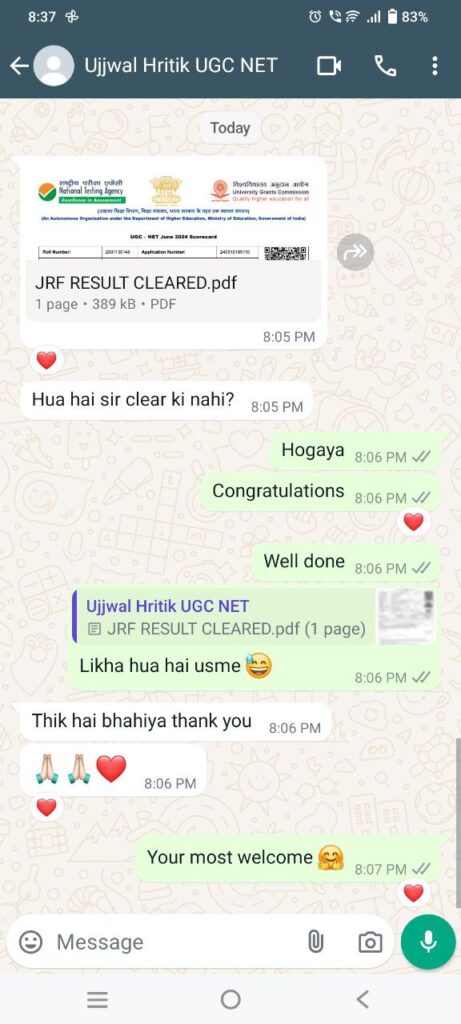

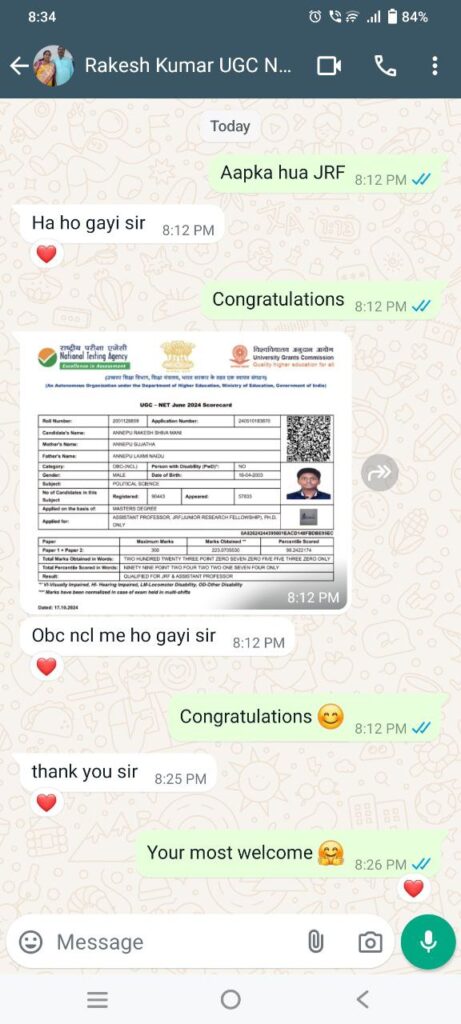



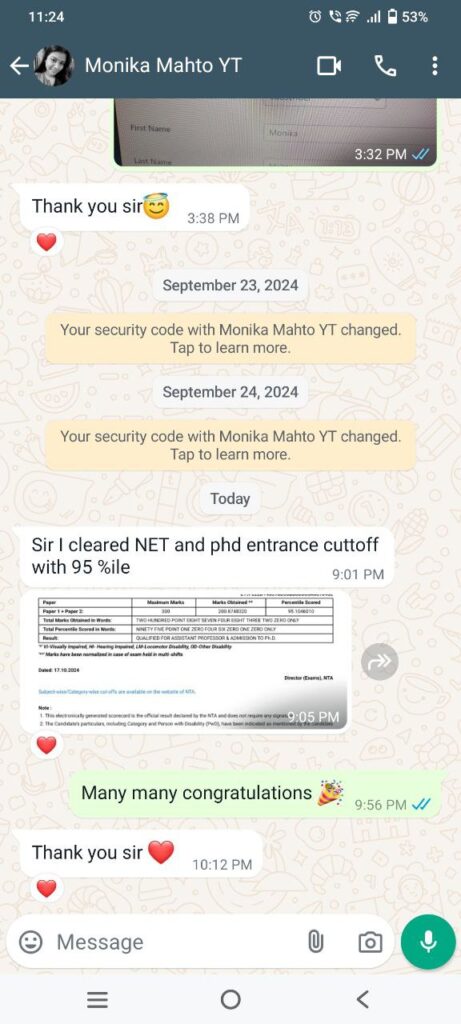

UGC NET Paper-1 Online Course – Syllabus
Unit-I: Teaching Aptitude
- Teaching Concepts and Objectives: Understand what teaching means, the purpose of teaching, and different levels such as memory-based, understanding, and reflective teaching.
- Learner Characteristics: Study the traits of adolescent and adult learners, covering aspects like social, emotional, cognitive, and academic differences.
- Factors Affecting Teaching: Learn about the impact of teachers, students, learning materials, facilities, the environment, and institutions on the teaching process.
- Teaching Methods: Explore different teaching styles, comparing teacher-centered and learner-centered approaches, and methods such as traditional classroom teaching and online platforms like SWAYAM and MOOCs.
- Teaching Support Systems: Familiarize yourself with traditional, modern, and ICT-based support in teaching.
- Evaluation Systems: Understand different types of assessments, innovations in evaluation, and computer-based testing, including evaluations in the Choice Based Credit System.
Unit-II: Research Aptitude
- Research Meaning and Types: Study various research approaches, including positivism and post-positivism, and the characteristics of different research methods.
- Research Methods: Gain insights into experimental, descriptive, historical, qualitative, and quantitative research methods.
- Steps of Research: Learn the process of conducting research step by step.
- Thesis and Article Writing: Understand different writing formats and referencing styles.
- ICT in Research: Explore the role of technology in research activities.
- Research Ethics: Study ethical considerations in conducting research.
Unit-III: Comprehension
- Reading Comprehension: Focus on understanding a given passage and answering related questions to test your grasp of the content.
Unit-IV: Communication
- Communication Concepts: Understand the meaning, types, and features of communication.
- Effective Communication: Learn about verbal and non-verbal communication, intercultural communication, and classroom communication techniques.
- Barriers to Communication: Identify obstacles to effective communication and ways to overcome them.
- Mass Media and Society: Study the role of media in communication.
Unit-V: Mathematical Reasoning and Aptitude
- Types of Reasoning: Delve into different forms of reasoning, including deductive and inductive reasoning.
- Mathematical Skills: Work on number series, letter series, codes, relationships, fractions, time, distance, ratios, percentages, profit and loss, interest, discounting, and averages.
Unit-VI: Logical Reasoning
- Understanding Arguments: Learn about different argument structures, formal and informal fallacies, connotations, denotations, and the classical square of opposition.
- Indian Logic: Study traditional Indian logic, including different means of knowledge (pramanas) such as perception, inference, comparison, verbal testimony, implication, and non-apprehension.
- Venn Diagrams and Analogies: Use Venn diagrams for logical validation and understand various types of analogies.
Unit-VII: Data Interpretation
- Data Concepts: Learn about different data sources, acquisition methods, and classification.
- Graphical Representation: Master the interpretation of data through charts and graphs, including bar charts, histograms, pie charts, and line charts.
- Data in Governance: Understand the use of data in policy-making and governance.
Unit-VIII: Information and Communication Technology (ICT)
- ICT Basics: Familiarize yourself with common ICT terms, internet basics, email, audio/video conferencing, and the role of ICT in higher education.
- Digital Initiatives: Learn about digital developments in the education sector.
- ICT in Governance: Understand how technology is used in governance.
Unit-IX: People, Development, and Environment
- Development and Environment: Study sustainable development goals and their impact on the environment.
- Environmental Issues: Learn about pollution (air, water, soil, noise), waste management, climate change, and its socioeconomic impact.
- Natural and Energy Resources: Explore resources like solar, wind, hydro, biomass, and nuclear energy.
- Environmental Policies: Study key environmental policies like the Environmental Protection Act and international agreements such as the Paris Agreement.
Unit-X: Higher Education System
- Historical Context: Understand the evolution of higher education in ancient and post-independence India.
- Learning Programs: Explore different learning programs, including traditional, professional, and skill-based education.
- Policies and Governance: Study policies, governance structures, and administration in the higher education system.
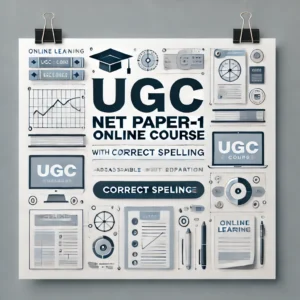
How to Prepare for UGC NET Paper-1 through PADHO TO AISE UGC NET Paper-1 Online Course: Simple Strategies to Boost Your Score
Preparing for UGC NET Paper-1 through an online course doesn’t mean you need to master every topic. This exam is about testing your general understanding, not deep expertise in every area. Here’s a practical approach to get the most out of your UGC NET Paper-1 Online Course:
No Need to Be an Expert in Every Topic:
With subjects like Teaching and Research Aptitude, focus on understanding the basics instead of trying to master everything. The UGC NET Paper-1 Online Course can help you grasp key points that are enough to answer questions without spending excessive time on each topic.Focus on Scoring Sections First:
In your UGC NET Paper-1 Online Course, pay extra attention to Maths, Logical Reasoning, Comprehension, and Data Interpretation. These sections offer clear answers, making them some of the most scoring parts of the exam. Regular practice here can help secure a higher score with less effort.Take a Practical Approach to Studying:
Rather than diving into every detail, stick to what’s practical. Summarize key points, make quick-reference notes, and practice questions similar to those in the actual exam. Your UGC NET Paper-1 Online Course can guide you on what’s essential to know, helping you avoid overload.Practice with Sectional and Full Mocks Regularly:
A great benefit of an online course is access to mock tests. Take advantage of these to simulate the real exam, helping you identify areas for improvement. Make it a goal to complete both sectional and full mocks frequently, and analyze your mistakes to avoid repeating them.Learn Effective Time Management:
With limited time, practicing how to answer questions quickly is essential. An online course often offers timed practice, which is ideal for building speed. Plan which sections you’ll tackle first, and stick to that plan to reduce stress and improve completion rates.Cover the Basics of ICT and Higher Education Topics:
In the UGC NET Paper-1 Online Course, ICT and Higher Education may feel broad, but just focus on the basics. Understand key policies, terminologies, and updates; this level of understanding will be enough for exam questions without excessive detail.Revise Regularly but Avoid Last-Minute Cramming:
Make use of course materials for regular revision to keep concepts fresh. Flashcards, summaries, and short notes work well. Avoid cramming at the last minute – staying calm and confident is key on exam day.
